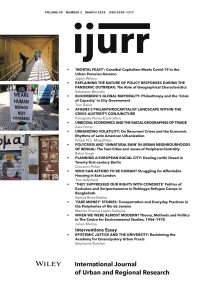The Covid-19 pandemic had a varied impact on different regions in Europe, resulting in diverse policy responses from subnational governments. In this article we investigate the policy measures local and regional authorities implemented during the initial wave of the pandemic, with a focus on 28 regions and cities in the European Union (EU). We examine 317 measures in the areas of public health, social security, daily life and work, and economic recovery, using a new analytical framework based on resilience theory to categorize these measures as mitigating, compensating, circumventing or exploiting. Through this research we aim to highlight the connection between the type and frequency of measures and regional characteristics, such as the severity of the pandemic, the quality of human capital and structural factors such as digital skills and governance quality. Our findings reveal a prevalence of coping measures, specifically in terms of support for vulnerable populations, that indicate that policy responses are primarily focused on the short term. However, our study also identifies proactive measures that suggest potential long-term transformations in regions with higher levels of digital literacy, quality governance and lifelong learning opportunities. This article contributes to understanding the factors that influence regional resilience by suggesting that local and regional capacities significantly shape the nature of policy responses to crises. Additionally, in this article we emphasize the strategic importance of anticipating future crises and underscore the need for strategic intelligence and long-term thinking in regional governance.
Details
Written by:
Sébastien Bourdin, Mihail Eva, Corneliu Iatu, Bogdan Ibănescu, Ludovic Jeanne, Fabien Nadou
Digital Object Identifier (DOI)
https://doi.org/10.1111/1468-2427.13306
About DOI

